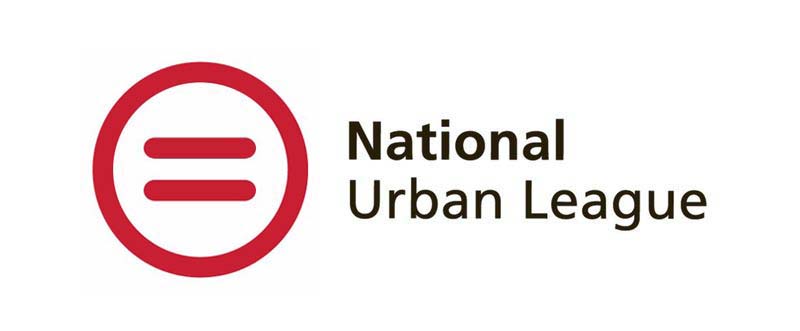Separating truth from fiction can be difficult. There’s so much information floating around, it’s hard to know what to believe — especially when it comes to a job search.
Knowing what hiring managers are looking for — and what they aren’t looking for — during the recruitment process can be the key to finding success as a job seeker.
15 Secrets Job Seekers Should Know
Here are 15 hiring manager secrets job seekers should know to help them find the facts in all that fiction!
1. Outbound Recruiting Tactics Are on the Rise
Recruiters and hiring managers rarely limit their search to inbound online applications in a hot job market. Instead, they actively use social media, cold emails, agencies, and employee referrals to find top talent. As an active job seeker, the trick is to get seen.
Being active on LinkedIn and optimizing your profile with industry keywords is a great way to start. Recruiters often narrow their search results by keywords, making it more likely you’ll turn up in their search.
2. Network Now for the Future
In addition to having a LinkedIn presence, some old-school networking (either virtual networking or in-person) can increase the odds you hear about job openings sooner rather than later. Your network can also help you land a referral to an open role, which can fast-track your application.
“The larger your professional network, the better,” Todd Garrison, a member of executive search network Sanford Rose Associates, says. “It really can pay off.”

Professional Skills
Discover your professional values in this free course from Discover Financial Services. You'll learn how to identify what you want from a job and how to connect with a company that supports your vision.
Avg. Time: 2-3 Hours
Skills you’ll build: Self-reflection, discovery, organization, planning
3. Keywords Aren’t Just for Resumes
There are other ways to ensure recruiters and hiring managers find you.
“Whether you are a passive candidate who might like to be found or actively trying to find a new role, your social media and LinkedIn page can be one of your most important career tools,” Garrison says. “Make sure you have a good online presence with keywords embedded in your profile to help you stand out and be found through Boolean search and artificial intelligence.”
RELATED: Resume Keywords: What They Are and How to Use Them
4. Standout Resumes Focus on Results, not Responsibilities
A list of prior job duties is less likely to attract a recruiter’s eye than a list of hard skills and accomplishments. Use the STAR method to turn your job duties into a description of your accomplishments and quantifiable results.
“Instead of saying ‘managed employer social media accounts,’ you should say ‘increased social media engagement by 22% over six months,’” Dan Shortridge, a resume writer, career coach, and founder of Results Resumes, says. “Rather than just stating that you were [the] assistant manager of a retail store, play up how you created a new procedure manual and trained 12 staff members in a new customer service technique, resulting in a 5% quarterly sales uptick.”
>>MORE: Learn the top skills to include on your resume.

Resume Writing Masterclass
Level-up your resume in our free resume writing masterclass. You'll learn how to use resume keywords, turn your duties into accomplishments, and more.
Avg. Time: 5-6 hours
Skills you’ll build: Professional summary, branding, identifying transferable skills, professional narrative
5. The Applicant Tracking System Isn’t the Enemy
This isn’t really a hiring manager secret as much as it is a common job search misconception: the applicant tracking system (ATS) rejects your resume because it didn’t have the right keywords or wasn’t formatted correctly.
The reality is that an applicant tracking system is a digital filing cabinet, nothing more. It’s a place for the recruiter to store your resume and search for it later. While you should still include keywords and format your resume so it’s easy to read and find, the bots aren’t rejecting your application. If you don’t hear back after applying to a job, it’s a human recruiter or hiring manager who thinks you’re not the right fit for the role.
>>MORE: What Is the Best Font for a Resume?
6. The One-Page Resume Rule No Longer (Always) Applies
The traditional rule of thumb for resume length says to keep a resume to one page. However, modern-day recruiters understand some job seekers might need more space.
“It depends on the specifics of your individual job search, but very generally speaking, you can use a second page if you have more than 10 years of experience,” says Daniel Lorenzo, marketing director of professional resume writing service Let’s Eat, Grandma. “However, only use a second page if you absolutely need it … and never use more than two pages. No one will read past the second page.”
7. Fancy Resume Design Can Be a Bust
Or, at the very least, it’s secondary to the content.
“Rather than picking a fancy template, I advise my D.I.Y. clients to simply use a plain Word document, using bold and italicized text and font size changes to make items pop as needed,” Shortridge says. “Stick with a one-column format, as two-column resumes often aren’t properly processed by computerized hiring systems.”
While you’re at it, skip the headshot. “A photo provides no value, uses up precious space that should be used for your accomplishments, and can be a trigger for unconscious bias or conscious discrimination,” Lorenzo says.
8. If the Company Asks for a Cover Letter, Send a Cover Letter
Sure, the practice might feel onerous—and antiquated. However, you’ll still want to write a cover letter if the job description or application asks for one. Another hiring manager secret is that they will likely assume you’re unwilling to take or pay attention to direction. In fact, you’ll want to follow all specifications in a job post.

Interview Success
Get prepped and ready for your next interview in this free course from BCLP. Practice your video interviewing skills, learn how to ace the online assessment, and more.
Avg. Time: 4-5 hours
Skills you’ll build: Communication, organization, time management, public speaking
“If the posting says to only apply on the company website and not through LinkedIn, your LinkedIn application won’t get seen,” Lorenzo says. “If the posting says to submit your resume as a PDF, only submit it as a PDF. You won’t get contacted to resolve any of these errors because the recruiters don’t have time. They will just move on to the other hundreds of applicants.”
>>LEARN: Here’s how to write a cover letter.
9. Dress for Success
Company dress codes have grown more relaxed in recent years, but avoid assuming every workplace (even a remote one) is business casual when planning an interview outfit.
“If you are in doubt about what you think might be appropriate attire for your interview, don’t be afraid to ask,” Garrison says. “If you are working with a recruiter, they can help you with this question. Or, if you are not comfortable asking and you’re not sure, the old adage of dress for success still applies.”
>>RELATED: What to Wear to a Job Interview
10. Tech Glitches Can Cost You
Remote interviews have become increasingly common, so recruiters and hiring managers expect candidates to be Zoom-fluent at this stage of the game.
>>MORE: Level-up your Zoom interview skills. Check out 12 tips for your next Zoom interview.
“If there are technology problems on your end, it doesn’t matter your explanation,” Garrison says. “You’re still late for the interview, and that seldom goes over well with a hiring manager who is on a tight schedule.”
Avoid technical issues by checking all your equipment a few days in advance and signing on to an interview 15 minutes before it starts, Garrison suggests.
When using Zoom, make sure you’re equipped to share your screen, if needed, and that your background has been updated or blurred.
11. Behavioral Interview Questions Are in Vogue
Behavioral interview questions elicit how you have acted or reacted in specific situations. Employers rely on them to assess how you might handle scenarios that are likely to occur on the job.
“For example, an interviewer might ask, ‘tell me about a time when you had to deal with a difficult customer,’” says Michelle Humphrey, founder and C.E.O. of Resignation Letter Samples.
To avoid getting put on the spot, search for commonly asked behavioral interview questions and brainstorm some answers ahead of time.
12. You’re Expected to Share a (Real) Weakness
When hiring managers ask about your biggest weakness, they’re not looking for you to frame a strength as one ( i.e., “I’m a perfectionist). Instead, they’re looking for an honest answer.

Technical Interview Prep
Get ready for a technical interview in this free course from Girls Who Code. Learn how to tackle whiteboarding, take home assignments, and more.
Avg. Time: 5-6 hours
Skills you’ll build: Array, matrix, hash table, software engineering, whiteboard challenge
“Although this may seem counterintuitive, interviewers often ask this question in order to get a better sense of your self-awareness and ability to recover from setbacks,” Humphrey says.
To ace this question, talk about your areas for improvement and your steps to work on them.
>>MORE: Learn how to answer more common interview questions.
13. You’re Also Expected to Show Enthusiasm
Hiring managers aren’t just looking at your credentials. They also want to see that you’re genuinely interested in the company and the role.
“Applicants that are more interested in their commute time or pay than the mission and values of the company will get declined 100% of the time,” Vanessa Rosenblum-Inglese, President of Pro R.E.A. Staffing, says. “Think about who you are, what’s important to you, and why you want to work for a company and be prepared to ask questions around culture and values to your interviewer.”
14. Prepare for Several Steps in the Interview Process
While top-tier talent might influence the steps in a particular hiring search, companies increasingly require candidates to complete assessments, skill exams, or several rounds of interviews.
“It’s mostly risk aversion — they’re terrified of making the wrong choice — but it’s also turning many applicants off,” Shortridge says. “If you really want the job, just pace yourself and smile. If you don’t, offering professional feedback about the length of their process will be a gift.”
15. Ghosting Might Haunt You
It’s tempting to cease communication with a recruiter once you’ve decided you’re not interested in a particular position, but you might regret that radio silence in the future.
“If [you] decide during the interview process to ghost the company, then later on the employer has a role you are interested in … they likely won’t view you favorably again as a candidate,” Garrison says. “Use professional communication, email etiquette, and display high character behavior at all times. If you are no longer interested, say so professionally. It may just help you in the future.”
Find Job Search Success
As you’re searching for a job, keep these hiring manager secrets in mind to help you navigate the entire process from start to finish, without getting overwhelmed by hype.
And if you have no idea where to start, consider enrolling in a Forage virtual job simulation. They’re free and can help you decide what career path is right for you.
Image credit: Christina @ wocintechchat.com

